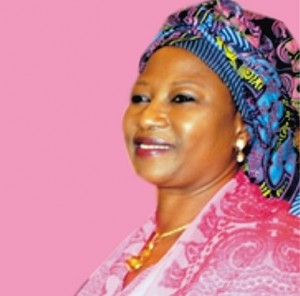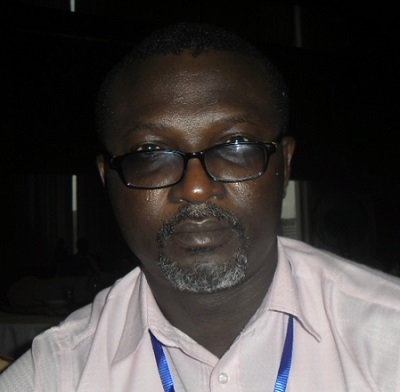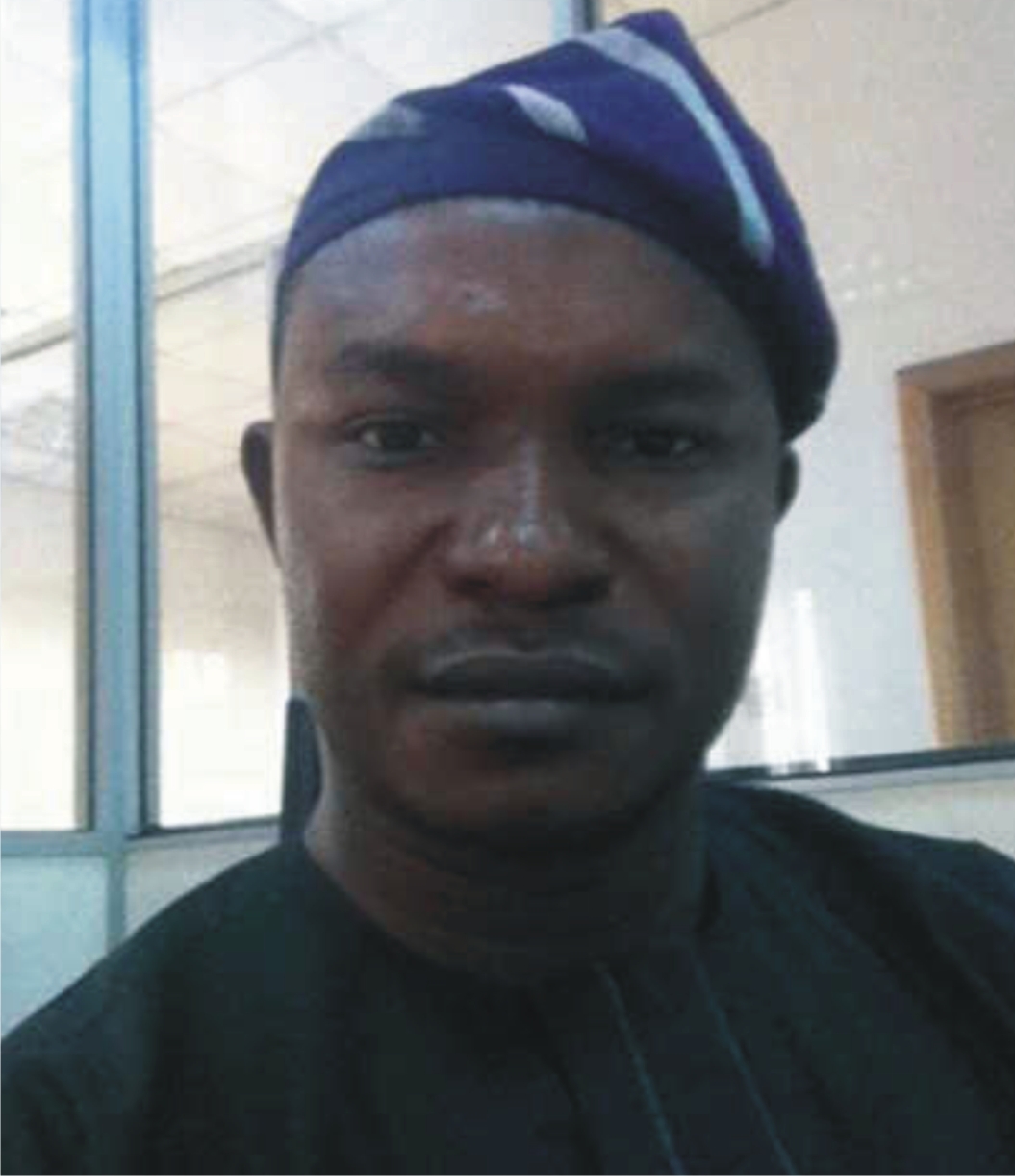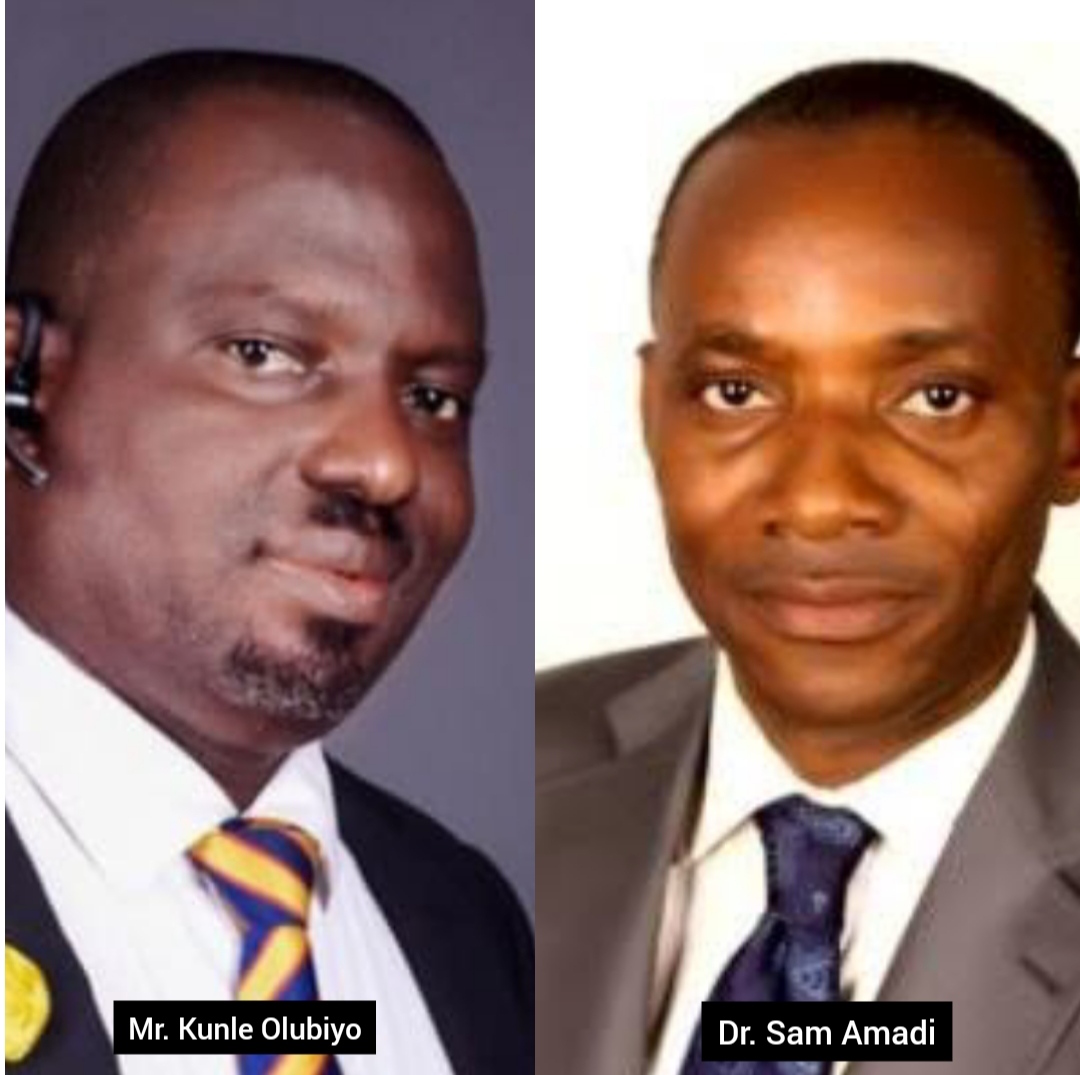The Conspiracy Against CTN In Nigeria – Shall-Holma

Mrs. Dabney Shall-Holma is the Director, Commercial Shipping Services of the Nigerian Shippers’ Council (NSC), the nation’s port economic regulator. She is known for her cerebral personality, especially in shipping and maritime matters. In fact, some say, she is shipping personified.
In this interview, she speaks with an unusual shipping temperament evoked by what some stakeholders called, the blackmail of the multinational shipping lines against the Council and the Federal Government over the re-introduction of Cargo Tracking Note (CTN).
“Madam Shipping” was pissed with some sponsored publications in the media by the agents of these foreigners, who are said to be dancing around for some fallen crumbs at the expense of national security, safety and revenue growth, as stated. Why are the shipping lines against CTN, what is the conspiracy, how are they aided by MAN, NACCIMA, others? Find out in this chat. Excerpts:
You said that the charges as published have nothing to do with the Shippers but Shipping lines. Explain please.
Well, the charges as published was a notice to guide shipping companies, lines and agencies in their preparation of their Movement Reference Number(MRN) which is the document they are supposed to prepare after the Entry Summary Number(ENS) has been filled in by the shipper. The ENS is completed by the shipper and it is at no cost, which means the shipper does not pay anything. However, the intendment of the cargo tracking note right from when it was established in 1998 in Libreville, Gabon was to get the major components that make up freight as well as surcharges to the West and Central African sub-region. You will notice that there is a huge outflow of trade from West and Central African Sub-region on account of freight, it is not in the basic freight but in freight additionals, in the bunker adjustment factor, currency adjustment factor that is never altered, and in the various surcharges, whether they are war risk or freight taxation or emergency recovery surcharges. So there are so many surcharges. And it is this retinue of charges that we have said that for those of them that are freight tax, these payments can come from there because there is already a taxation that is undefined. It has nothing to do with additional cost. So CTN has nothing to do with the shipper that is importing or exporting at the moment. Rather CTN comes from payments that are already payable per consignment. Whether Nigerian Shippers’ Council (NSC) introduces CTN or not shipping companies will continue to collect these freight taxations. The 25 dollars per container and indeed all the other fees listed are expected to come from the already existing taxation on Nigerian freight. And the major outcome of the cargo tracking note is one, it must give us the important component of freight cost, so that subsequently we can even address where there are wastages in the system. And it must also identify choices available to shippers. For instance, if a user of shipping services is insisting on a particular surcharge and that surcharge has no benefit to the economy, and has no relevance to the trade, we can get him to drop that surcharge or get the user of shipping services to go elsewhere. They will be other shipping companies that will be willing once the information is made transparent to say that surcharge ABCD is no longer necessary, so that we can accept clients that are willing to take our new rates.
This will also assist us in determining what the exact freight rate is. Right now, we do not know, it is a lump sum. And when you have a lump sum freight rate, all the shipping companies and the providers of shipping services are closing up every opportunity of appreciating what is going into the shipping cost.
We also want to ensure that the CTN will enable us pass savings to clients. On the bunker adjustment factor, the cost of fuel has nose-dived to $47 dollars from 115 dollars, has any shipper benefitted from the nose-diving? Has bunker adjustment factor altered? That is one major outcome. And if that outcome from the CTN is left then every shipping company will be bound to pay. In addition to paying for the administrative cost of CTN, they will also be made to pay that, and I think that is one of their major fears, that some of the cost components will be so exposed and the cost factors will be so real to shippers and to the Nigerian economy that the economy by fiat will compel them to comply and to also set up residual charges. And they don’t want to do that. There have been increases in insurance premium to cover other things. And those insurance premiums have been fluctuating, but there have been going up instead of reducing even while we don’t have piracy, insurance premium goes up. Now who is supposed to be responsible in settling the excesses and who is supposed to benefit? CTN must expose that.
In the cargo tracking note you must clearly identify what the premium is. There are other issues that will increase the competition of the importers and exporters in terms of benefits that are derivable from this process. We want the shippers to begin to leverage on the information that is available because if you have the directional spirit of where traffic is going you will know where your business is expected to shift. If it is cheaper to go to the Mediterranean and trade there, it will be exposed through the data available on the CTN and then you can switch your business to that. And then you will also be able to know what kind of business you are to change on to. So, it will give you a varied opportunity for selectiveness in trade and it will create experts and create niche players, people who can say in this place this is what I am trading on and that the most profitable, because it will be obvious from the CTN. But I want to emphasize one thing. And that is, discussions with shipping companies that were held in 1998 in Libreville, Gabon and Brussels, the major players there were shipping companies, although diplomatic levels were employed at that discussion. However, at the meeting, all shipping companies, the principals agreed that the CTN would attract no cost in West and Central Africa. The intendment of the project is to ensure transparency and to bring the principals back to the negotiating table because the demise of shipping lines in the West and Central African sub-region had a platform of negotiating with the principals of shipping companies, not the agencies you see in our clime but the people who actually employ the services of these agencies. When the conference liners demised, that platform was lost. And shippers’ councils as the representatives of the various shippers in the sub region now took upon themselves to meet and then decide on what kind of strategy to employ to bring the shipping companies to a negotiating table. And we took that fight to Brussels in 1998. It was extremely successful that as soon as we returned from Brussels, five West African countries implemented CTN instantly. Today,if you go to Clarkson Intelligence and you are looking for freight and releases of information given by shipping companies every 1st of July and 1st of January, you will not see any country that is charged CTN. There is no record of any country charging CTN from the available information, so why should Nigeria’s case be different? If other countries are benefiting from it and they are not being charged, why should our own case where we have over 75 percent of the traffic, not benefit? This means that the shipping companies are already benefitting tremendously from the economy but we are being told that the economy is going to pay for the CTN. This is a misnomer and obviously something being done out of mischief. But most importantly, the Nigerian Shippers, the mass media, Nigeria’s regulatory agencies should be rest assured that NSC will not rest on its oars until this is addressed decisively. Shipping companies and the principals will be called to order. The government will give an instruction to that effect. This was why when the CTN structure was being formed, we insisted that once you log on to the system and you want to register, it gives you a barcode and on the barcode as soon as you click it will give you an information, wherein there is an administrative and cost information. And the people who use that information are strictly shipping lines. We would have said shippers can access the information. We did not say that. And the system as it was designed does not allow any shipper to register or get information and that is because it is not for the shipper. It is for the lines and they know their responsibility. Another practical example here is that when we decided to introduce the MOWCA (Maritime Organisations of West and Central Africa), levy, we went to 25 countries of West and Central Africa and spoke with each of the governments. Not even the ministers; the Presidents just to get the buy in on the introduction of the MOWCA Levy. We went to shipping lines in Brussels and in France because if you look at the nature and the way shipping is structured there are about eleven components. Most of them are centered on shipping operations and they are too critical countries that control nearly 60 to 65 percent of ship operation. They are not the ship owning countries but they are ship operators. Switzerland is quiet but it is one of the ship operators. Denmark owns Maerskline but most of the vessels that are Denish- owned are operated by Netherlanders.
The Netherlands and Switzerland, virtually control the shipping industry. Some of them are in Brussels, France and the Netherland. So when you go to Rotterdam or Hamburg you find them and they are quiet but they are the major ship operators. We met almost 70 percent of those ship operators and we discussed with them and they agreed that the MOWCA levy was going to be the responsibility of the ship owners as agreed at the Mincoma Conference that was held in Cotonou Round table II in 1997. The synthesis of Cotonou Roundtable II clearly identified collaborative development of port infrastructure; collaborative development and responsibility to Corporate Social Responsibility (CSR) in countries where ships come to West and Central Africa. So we said based on this, we want to introduce MOWCA levy, and we want you the ship owners to take the responsibility and they agreed. That was taken note of. When we came back Magnus Addico was appointed the Secretary General of MOWCA, purposely to drive that and ensure that shipping companies that are plying in West and Central Africa participate in the development of maritime trade in the region as they had promised. Two years into the introduction of MOWCA levy, it reverted to Cargo. And I am sure that everything that is being done to it to reverse that has failed because the shipping companies are recalcitrant in West and Central Africa but if you talk to the principals they will say “it can be done because we are trading in this region and we have the responsibility to ensure that the region grows so that our trade can improve,” but we don’t see that happening. CTN is another tool that is supposed to do that and they are attacking it. So I want Nigerians to know that somebody is pulling a wool over their eyes. And especially the Organized Private Sector (OPS)should not allow itself to be lured into taking on a fight that is needless, not adding value to the nation’s economy because they are major players in this country. If this economy thrives, the Manufacturers Association of Nigeria (MAN), the National Association of Chambers of Commerce, Industries, Mines and Agriculture (NACCIMA), among others will thrive. Our businesses are dying because there is no inflow, all we have is outflow of resources, forex is going up even in the black market, people are buying dollars and pounds to go and import, whereas the reverse could be the case when we get sufficient resources to assist the government to develop hitch industries, hitch facilities and infrastructure that will attract trade to Nigeria. We want the Nigerian port system to move from a “Need to”, to a “want to” proposition. Right now, we are saying Nigeria is the hub, we want it to be the hub, on the premise that we are “Needing” but a “Want to” proposition is, for instance, I have my cargo and it is coming to West Africa, I may be a Gabonise, but I would prefer that it comes to Nigeria because this is where it will be discharged at less cost, efficiently and seamlessly and I can even participate in establishing an industry in Nigeria just like other Nigerians were going to Ghana, Cotonou and Togo to establish businesses. So, we want to move from the “Need to” to a “Want to” proposition, and in doing that, we need resources just like we need resources today in Nigeria. This is one viable area that the shipping companies can now say that they are partnering with government, “Let us contribute our own quota to make sure that we create a viable trading environment, and Nigeria will be proud that she is associating with international companies that are involved in shipping.”
You know we don’t have vessels, if we had vessels we would have told them a long time ago to mind their business. But we don’t have. They own the vessels, they manage the vessels, they operate the vessels, they insure the vessels and they are the ones responsible for that. So even if we are chartering, they are the ones chartering for us. So everything that has to do with the benefits of transportation and logistics is lost to the economy and that is a great revenue earner. And we don’t want to lose sight of that. So please help us relay this message.
I think there is the need for NSC to publish those cost components in shipping which have taken care of the CTN cost, for the public to know, because the shipping lines are playing mind-game with their advertorials
We will do that, I think there are about 19 of those cost components. And then we will identify the ones that take of the CTN, especially in the surcharges.
Are you saying that the multi-natational shipping lines want to truncate CTN?
They are trying to truncate it because they don’t want it because of what it stands for. They are the same shipping lines that are dealing with all the other 18 countries in West and Central Africa that are implementing CTN. And in those countries, they pay 65 euro per TEU and it graduates right down on bulk Cargo, RoRo Cargo, and others. The lowest cost is 34euro but in Nigeria we are charging 25 dollars, not even euro per TEU, which is less than a quarter of the 65 euro that other countries are charging. But they are not worried about that because if you look at the trade of those countries, Nigeria controls most of the trade in the region, and then know that once the Nigerian trade is made transparent they are in trouble because they have too many padded and add-ons as shipping costs that are not made obvious now. And the CTN that we are doing is entirely different from any CTN being implemented now in West and Central African countries. Ours is advanced cargo declaration, it gives you a column where you must put the cost, you must identify what the cost is and also the surcharges, specifying whether it is freight additional or a GRI, which means a General Rate Increase, which shipping companies do from time to time and they hide it and people don’t really know. When you go for a shipping invoice, you are given a lump sum, it does not tell you what GRI is, it does not tell you what the basic freight is. Truly, if you look at the basic freight coming to Nigeria, it is very much like that of any other country, but by the time you take lump sum, you have like nearly 75 per cent more than everybody else because they can easily pad it up since they can’t give you the information. So what we are saying is that you must identify these costs. If you are charging us for piracy, let us know. If you are charging us for any inefficiencies at the port, let us know. They call it extenuating factors, at least you write it down so that we know because it will also help us to take remedial actions, if is not just for them. It will help the Federal Government to say, “look Nigerian Ports is becoming too difficult to trade and these shipping companies are charging on account of that, is there anything we can do to correct that?” It is helping both the trader as well as the service provider but if it is not seen that way by them, theirs is that you should not know how much they are charging you, and we are insisting that you must tell us what bunker adjustment is, you must tell us what the risk factor is, you must tell us any trade additional that you have included, you must tell us if you are charging us war risk, you must tell us if you are charging us emergency rate recovery, we need to know that, which is the ERR; you must tell us if you are charging us freight tax because they are already charging environmental levy in two places. We are not worried about that because they have clearly spelt it out and we know which agencies are collecting that. NIMASA is collecting N450 as environmental levy and you are now charging 50 dollars for that, you know there is a pad up and this is what we don’t want.
The shipping lines and MAN are saying it has additional cost to shippers.
No, there is no cost to it, of course, they will use that so that they can play on the psyche of the readers of the document. They have been informed that CTN would come from the freight surcharges and freight additionals. They are aware but they are resisting it. But they can’t take their resistance to the NSC because we know where they are padding up the cost but they will say that to the Nigerian public and the OPS, so that they can create anxiety in the industry and generate this kind of conflict that we are already in because people are beginning to call us and ask questions.
How much of awareness creation has the NSC done to make the public buy in to CTN?
When this project was to be launched, we embarked sensitization campaign targeted at a select audience. We targeted the OPS first, the series of first four meetings we held were with the organized private sector. We held meetings in Lagos, Abuja, Kano, Port-Harcourt. We emphasized all that; that this project is going to be totally different from what the Nigerian Ports Authority did before. That was why I had to go back to history so that you know that NSC was the one who crafted CTN. I chaired the meeting in Libreville to craft CTN. So the intendment of the tool called CTN today which is an evolving document; when we crafted it in 1998, on July in Libreville, it was cargo capture, cargo identification but evolved into cargo tracking note in 2005 when the same Addico, Secretary General of MOWCA took all of us to International maritime Organisation (IMO) to say that Europeans are kicking against this project but this is what it represents. Additionally, it will create a lot of profiling and predictable risk assessment for cargo that is coming into Nigeria because it will help to satisfy a portion of cargo and container security in line with the ISPS code of the IMO. That explains why sometimes they say it is the Africa’s ISPS code, it is cargo ISPS code because the ship and ports ISPS code, NIMASA and NPA are in-charge to avoid any conflict. There are three components in this project. There is the cargo, ship and port components. The three are resting on a tripod. The NSC as at that time was solely responsible for cargo, so was the only organization in Nigeria that had the mandate by both the IMO and the United Nations Conference on Trade and Development (UNCTAD), World Customs Organisation (WCO), World Trade Organisation (WTO) and the Union of African Shippers Council (UASC) to implement CTN. We woke up one morning and another agency is implementing it. We held some meetings to object to it but it did not work out because NPA had already gone into a network with a group of organizations for its implementation. So, we said we are in government, there was no need fighting government rather all we needed to do was to support the project and ensure that it worked very well. But you see, when you are not in the mainstream, you cannot put in the necessary controls like the NSC is doing right now. We have control in everything and that is why we are saying that Nigerians should not be afraid of CTN because the CTN of today is extremely controlled. When information enters today we get it in less that two hours. So if there is any variance in that information or under declaration we will tell NPA and NIMASA that there is under declaration somewhere, so that maritime fraud that was the order in the industry would no longer be there. We can now block all those leakages and wastages that happen and not because there is a conspiracy at the local front, which means the relevant agencies here may not even be aware of the fraud, but the multinationals over there do it.
The players in the industry know what they are doing and some of them are truly very smart at what they do. They could come up with the information that “Oh! We discharged 100 containers somewhere, but we discharged 50, 000 metric tonne somewhere and is not part of this.” And then how much does customs need to realize from that 50, 000 metric tonne? You know how much that is in terms of revenue. These are the things we are actually checking through this CTN because information on the vessel and cargo will be received instantaneously. And we will be off-loading it to Central information system. Right now, we are working with a team from Central Bank of Nigeria (CBN), who do the off-loading on our behalf that is why the 1st and 2nd floor of our building have been dedicated to the CTN. This is to make sure that the benefit we say will accrue from CTN will surely accrue and government revenue will increase. This is just to ensure that there is transparency, not just the revenue end, which is a small aspect of the whole exercise. We are looking at the issues of under-declaration; leakages in the system; conspiracies here and there; unrecorded vessels that come to Nigerian ports, whereas we know that those vessels were meant to leave their port of origin to arrive Nigeria. So where did the vessels go if there are no records of them been received at the ports of berth? We can check that but shipping companies don’t want us to check that.
The shipping lines listed some fee on vehicles as CTN charges. How true is this?
The charges are part of the charges they published, but these are mere administrative fee of CTN meant to be paid by the shipping companies not for shippers. Is that okay?







